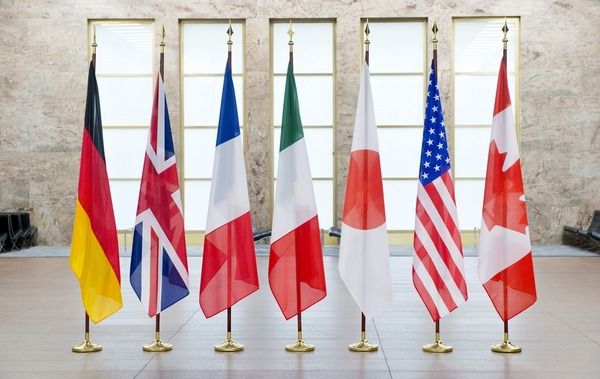G7 agrees climate action efforts
Group of Seven leaders agreed efforts to limit global warming to 2°C at a summit in Germany on Monday

Group of Seven (G7) nations agreed on efforts to limit global warming to 2°C at a summit in Germany on Monday.
The meeting of the G7 leaders of Germany, France, Japan, Canada, the United States, Italy, and the United Kingdom started on Sunday in the Bavarian Alps and climate change has been high on the agenda.
The group will focus their climate efforts on cutting greenhouse gas emissions and raising US$100 billion annually for the UNs Green Climate Fund to support climate change mitigation efforts in developing countries.
A declaration by the group said: “Urgent and concrete action is needed to address climate change. We remain committed to the elimination of inefficient fossil fuel subsidies.”
The meeting is a key opportunity for the leaders to discuss environmental policy in the build up to the major U.N. climate conference in Paris in December.
The 21st session of the Conference of the Parties (COP21) to the United Nations Framework Convention on Climate Change (UNFCCC) takes place in the French capital later this year and a global deal to limit greenhouse gas (GHG) emissions is expected to be agreed.
Germany is the chair of the 2015 G7 and Chancellor Angela Merkel scheduled a session on climate and energy topics for Monday morning.
According to research from the World Bank, the U.S, France, Canada, Germany, Japan, and the UK emit approximately the equivalent amount of greenhouse gases per year as China does so emissions reduction in China as well as India is crucial to addressing climate change.
The group said it will work to improve access to clean energy in Africa and developing countries “with a view to reducing energy poverty and mobilising substantial financial resources.”
The agreement included “support” for 40 to 70 per cent GHG reductions by 2050, compared to 2010 levels.
The group’s declaration added: “We commit to doing our part to achieve a low-carbon global economy in the long-term, including developing and deploying innovative technologies striving for a transformation of the energy sectors by 2050 and invite all countries to join us in this endeavour. To this end we also commit to develop long term national low-carbon strategies.”






